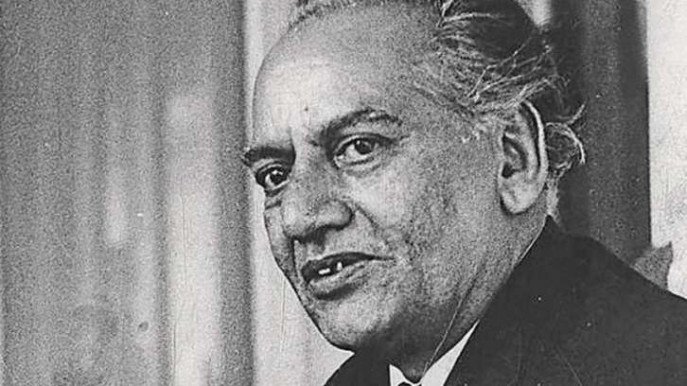Faiz Ahmed Faiz was an intelligent man. He masked himself as a revolutionary, but like everyone in Pakistan, he was an Islamic supremacist at heart. For many in the Indian subcontinent, reading Faiz is the peak of intellectual supremacy. Reciting his poetry is a qualifier for people to be considered a part of the revolutionary elite. No wonder, in the film ‘The Kashmir Files’, the character played by Pallavi Joshi sings the tunes of Faiz’s nazm, ‘Hum Dekhenge’. She is surrounded by Hindu students, and yet, they all feel empowered hearing the poem being sung.
Why is that? How is a Pakistani poem considered the pinnacle of poetic excellence, that too in India, out of all other places?
Putting Faiz in Context
It must be known that Faiz had penned the invigorating ‘Hum Dekhenge’ nazm against the authoritarian Zia-ul-Haq regime in Pakistan. It, among many things, has ‘revolution’ as its central theme, as Faiz was a declared Marxist. The recitation of the above quoted lines, in a place where many people may not be aware of its original meaning, and who may at first-hand feel attacked by these lines, is out-rightly insensitive.
Credit where due, Faiz spoke against the Zia-ul-Haq regime, and that required courage. However, you must understand that Islamism is the de facto state of mind of a majority of Pakistanis. For them, Hindu hatred is a normalised facet of life. Being disgusted by non-Muslims is not considered something unique in Pakistan. It is expected of Pakistanis to harbour such sentiments, which is why minorities have been wiped out in the joke of a country.
However, Hindus do not hate their culture and faith. In 2020, when a bunch of Hindu-hating activists recited ‘Hum Dekhenge’ at the IIT-Kanpur campus, Hindus felt outraged. According to them, the lines of the ‘Hum Dekhenge’ nazm were explicitly targeting their culture. Back then, Hindus were called ‘intolerant’ for feeling insulted by the lines, when, rudimentary sense should have suggested that those shouting these lines at the top of their voice were doing so with clear intentions of claiming religious supremacy over others.
The Famed Lines
“hum dekheñge
lāzim hai ki ham bhī dekheñge
vo din ki jiskā va.adahai
jo lauh-e-azal meñ likhkhā hai…”
The day which Faiz is referring to in the perspective of lauh-e-azal is the day when only the “one true” empire shall remain on the face of the earth. Take a guess, what will be the religious features of this empire? Such a day, Faiz argues, finds mention in the lauh-e-azal, which is a term used in the Quran to refer to the eternal slate on which the destiny of the whole universe from start to end has been recorded.
“…jab arz-e-ḳhudā ke kaabe se
sab but uThvā.e jāeñge
ham ahl-e-safā mardūd-e-haram
masnad pe bithāe jāeñge
sab taaj uchhāle jāeñge
sab taḳht girāe jāeñge
bas naam rahegā allāhkā
jo ġhā.eb bhī hai hāzir bhī
jo manzar bhī hai nāzir bhī
uTThegā anal-haq kā na.ara
jo maiñ bhī huuñ aur tum bhī ho…”
“Only the name of Allah will remain”?
Now, what does such religious pumping have to do with revolution? That’s not even the biggest problem with these lines.
“All idols will be removed from the abode of God”. What’s the abode of God? The world. Everything around us in God – at least that is what Indian beliefs teach us.
So, Faiz, while taking a leaf out of Indian faith systems, declares that all idols shall be removed from the face of the earth.
“Uthega anal-haq ka naara” – “The slogan of the truth shall rise”.
Again, what is the truth? The truth is, here, used in reference to the “One True God, Allah” theme of the Islamic world.
The poem (Hum Dekhenge) has been parroted by weird-looking individuals at Islamist protests in recent times. The most striking usage of the nazm came during the Shaheen Bagh protests, which culminated with the anti-Hindu Delhi riots of 2020. That was how the poem enthused a certain set of people to go after the lives of kafirs.
